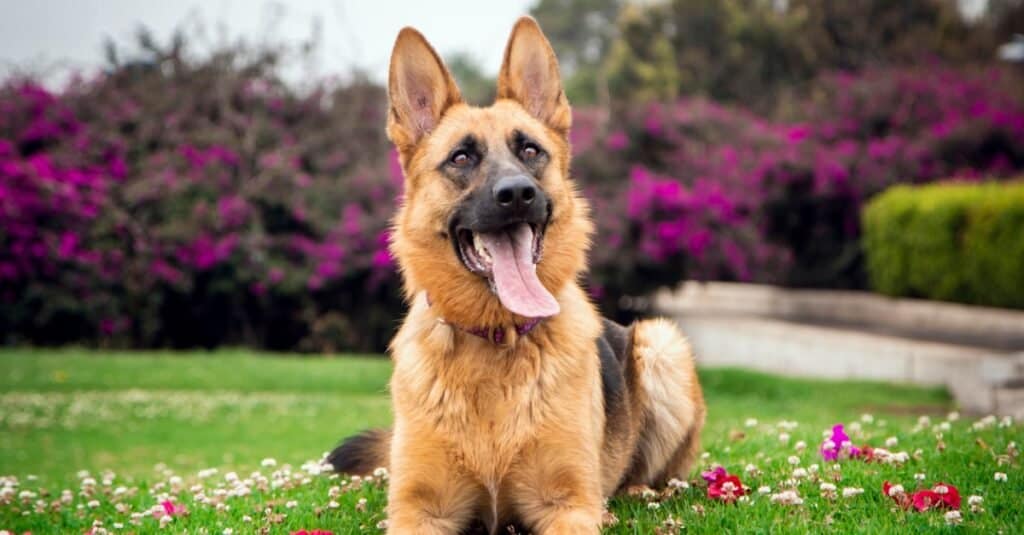
German Shepherd Heat Safety Tips: Protect Your Pup Now!
Share
As a devoted pet owner, ensuring the well-being of your furry friend is always a top priority. When it comes to the majestic German Shepherd, their double coat and active nature make them particularly vulnerable to heat-related issues. Knowing the right heat safety tips is imperative to keep them safe and healthy during hot weather.
Understanding how to protect your German Shepherd from the heat is not just about comfort; it's a matter of health and safety. In this article, we will delve into crucial German Shepherd heat safety tips that every health-conscious pet owner should be aware of.

Recognizing the Signs of Heat Stress
One of the first steps in heat safety is understanding the signs of heat stress in your German Shepherd. Dogs that are overheating may exhibit symptoms such as excessive panting, drooling, lethargy, and even vomiting. If you notice these signs, it's crucial to act quickly.
Immediate Actions to Take
Should your German Shepherd show any signs of heat stress, move them immediately to a cooler area. Providing them with fresh, cool water is essential, and if possible, use a fan or air conditioning to help lower their body temperature. For more in-depth care tips, check out cold weather care for German Shepherds as it offers insights that are applicable in hot conditions too.
Creating a Cool Environment
Ensuring your German Shepherd has access to a cool environment during hot days is vital. If you don't have air conditioning, consider using fans or setting up a kiddie pool in the shade where your dog can cool off. Additionally, ensure that their sleeping area is well-ventilated and not exposed to direct sunlight.
Outdoor Activity Adjustments
German Shepherds are active dogs, and exercise is crucial for their mental and physical health. However, during hot weather, it's important to adjust their activity levels. Avoid walks or playtime during the hottest parts of the day. Instead, opt for early morning or late evening when temperatures are cooler. For more activity-related advice, you might find our article on agility course training beneficial.
Hydration is Key
Dehydration is a serious risk during hot weather, especially for active breeds like German Shepherds. Always ensure your dog has access to fresh water. Adding electrolytes to their water can also help maintain their hydration levels. For further reading on maintaining your dog's daily routine, visit our daily routine tips post.
Signs of Dehydration
Watch for signs of dehydration, such as sunken eyes, dry gums, and a loss of skin elasticity. If you suspect dehydration, contact your veterinarian immediately.
Protecting Paws from Hot Surfaces
Hot pavement can cause serious burns to your German Shepherd's sensitive paw pads. Always check the ground temperature with your hand before taking your dog for a walk. If it's too hot for your hand, it's too hot for their paws. Consider using protective booties or walking on grass whenever possible.
Proper Grooming Techniques
While it might seem like a good idea to shave your German Shepherd in hot weather, their double coat actually helps regulate their body temperature. Instead, focus on regular grooming to remove excess fur and prevent matting, which can trap heat.
Grooming Tools and Techniques
Invest in a good quality brush to keep your German Shepherd's coat in top condition. Regular baths can also help keep their skin clean and cool. For more grooming insights, visit the Petfinder's breed page for German Shepherds.

Conclusion
By implementing these German Shepherd heat safety tips, you can ensure that your beloved pet stays safe and comfortable during the warmer months. Always be vigilant and proactive in monitoring their behavior and environment to prevent heat-related health issues.
FAQ Section
Q1: Can I shave my German Shepherd to keep them cool?
A1: It's not recommended to shave your German Shepherd, as their double coat helps regulate their body temperature. Instead, focus on regular grooming to keep them comfortable.
Q2: How can I tell if my dog is dehydrated?
A2: Signs of dehydration include sunken eyes, dry gums, and a loss of skin elasticity. If you notice these symptoms, contact your vet immediately.
Q3: What time of day is best for walking my dog in the summer?
A3: The best times to walk your dog during the summer are early in the morning or late in the evening when temperatures are cooler.
This article contains affiliate links. We may earn a commission at no extra cost to you.
